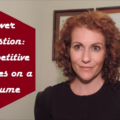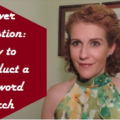Case interviews are very popular with consulting firms and investment banks when they are hiring MBA graduates. In recent years they have become increasingly popular with other organizations as well. In fact, some organizations use the case interview as part of their screening process for business undergraduates.
Case interviews come in many forms, such as a brain teaser or a classic case study, much like business students use as part of their program. It is used to assess a candidate’s ability to analyze and solve business problems. Specifically, the organization is assessing one’s ability to see the big picture, understand the root cause, and the implications of the issues at hand. Finally, organizations want to hear the “so what” behind the issues. In other words, it is not enough to say that profitability is down because sales are down. Why are sales down? What impact does the economic or competitive landscape have on the issue?
4 Tips for Preparing for the Case Interview
- Increase your business knowledge. Keep up to date on business news by reading Forbes, Maclean’s Magazine (Canada), Bloomberg, CNN Money, etc.
- Practice, but not too much. Many of the big consulting firms like BCG, McKinsey, Bain, and Deloitte, will have sample cases on their websites. In addition, there are numerous books and websites dedicated to helping people practice doing case interviews. With no shortage of practice material available, it is important that you do not over practice. In doing so, you can get brain fatigue which may prevent you from coming up with an innovative solution to the case presented in your interview.
- Know your frameworks. There are several frameworks that you should have in your toolbox, such as the SWOT, Porters 5 Forces, and the 4 Ps of Marketing. Although it isn’t necessary to know every framework that has ever been used, it is important to know which framework is appropriate for the issue at hand. If you need to put a nail in the wall, you can use a wrench, but a hammer would be much more effective and efficient.
- Mock Interview, but not too much. Seek out people with whom you can conduct a mock case interview. It would be ideal if this person has recently been through a round of case interviews, or conducts case interviews. They should be able to provide you feedback on your approach. Much like with practice, try not to overdo it or work with too many different people. You could run the risk of getting conflicting feedback which can be counter-productive.
5 Tips during Case Interviews
- Ask questions. The quality and relevancy of the questions you ask will be assessed during the interview. Practice makes perfect when it comes to framing your questions.
- Group Interview. In some instances, the case interview could be conducted as a group interview. Company representatives will observe the interactions of the group. As the group tries to come to a consensus, the observers will make note of any candidate who might be trying to dominate the conversation. This behaviour will not bode well, especially in a consulting environment where teamwork is expected.
- Use simple math. It is not necessary to make your calculations precise during a case interview. Consulting math, or using round numbers and estimates, will suffice.
- Bring a pencil, paper, and graph paper. It is always best to be prepared for any interview by bringing paper and a pen or pencil. For the case interview, you will certainly need these tools. I would recommend using a pencil for your calculations and making changes to your notes. In addition, having graph paper will enable you to quickly draw graphs or charts to visualize the information you are given.
- Write legibly. At the end of the case interview, don’t be surprised if the interviewer asks you to hand in your notes. This information can be used to further assess you.
Final Thoughts
As mentioned, the purpose of the case interview is to assess a person’s ability to solve business problems. It is not about being 100% correct in your answer. Instead, the interviewer is assessing strategic thinking and thoroughness in coming to a conclusion. As a result, the questions you ask and the way in which you frame your presentation are critical for the case interview.
I hope you found this post helpful. If you have any additional insights, or would like to share your experience, I’d love to hear from you. Please feel free to leave a comment below.
Until next time, happy hunting!
For personalized advice, please click here.








